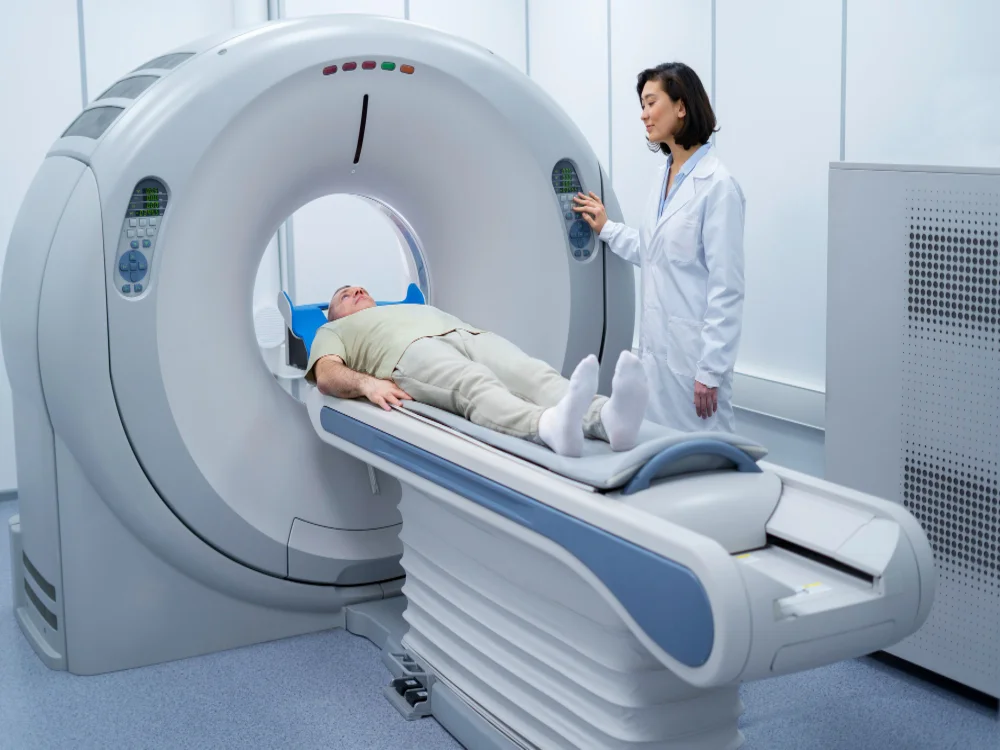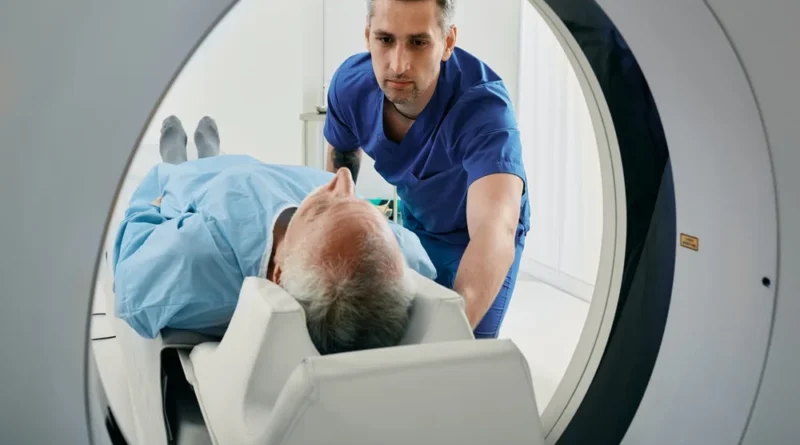What is a CT Tech – A Comprehensive Guide
Introduction to CT Technology
In today’s medical landscape, CT technology plays an essential role in helping doctors diagnose and treat a wide range of conditions. A CT tech, also known as a CT technologist, is a specialized healthcare professional who operates CT scanning equipment, contributing significantly to patient care. But what exactly does it mean to be a CT tech, and what does their job entail?
Understanding the Role of a CT Tech
CT techs are responsible for capturing detailed internal images of patients’ bodies through computed tomography (CT) scans. These images assist doctors in diagnosing issues that might not be visible on standard X-rays. The CT tech operates the machinery, ensures patient safety, and provides technical expertise in handling and interpreting images.
Responsibilities of a CT Tech
The core responsibilities of a CT tech revolve around the accurate capturing of internal images. This includes preparing patients, calibrating the scanner, ensuring imaging protocols are followed, and assisting radiologists in interpreting the results.
Daily Tasks of a CT Tech
Each day, CT techs review patient information, explain procedures to patients, and guide them through the scanning process. After taking scans, they check the image quality to make sure they meet diagnostic requirements, all while ensuring patient comfort and adhering to safety standards.
The Importance of CT Scans in Healthcare
CT scans are critical in modern healthcare, allowing for detailed visualization of internal organs, bones, blood vessels, and soft tissues. From diagnosing complex illnesses to aiding in surgeries, CT scans provide invaluable insights to medical professionals.
Why CT Scans Are Essential
CT scans can detect issues like fractures, tumors, infections, and blood clots. They’re crucial in emergency medicine as they offer quick results, aiding prompt medical intervention.
Common Uses in Medical Diagnostics
Beyond emergency diagnostics, CT scans are used in oncology, neurology, cardiology, and orthopedic fields, where they help monitor conditions, guide treatments, and plan surgeries.
Educational Requirements for Becoming a CT Tech
To become a CT tech, an aspiring professional typically needs an associate’s or bachelor’s degree in radiologic technology. This foundational education covers topics like anatomy, radiation physics, and patient care.
Academic Qualifications Needed
CT techs generally pursue an associate or bachelor’s degree in radiologic technology, ensuring they understand both the technical and patient-care aspects of the role.

Recommended Courses and Certifications
Courses in radiology, physics, anatomy, and safety protocols are essential for future CT techs. Many also choose to earn certifications from recognized bodies such as the American Registry of Radiologic Technologists (ARRT).
Steps to Become a CT Tech
Step 1: Obtain Necessary Education
Aspiring CT techs typically complete a degree program that provides them with essential knowledge and skills.
Step 2: Complete a Certification Program
Certification programs, such as those offered by ARRT, validate a candidate’s expertise and professionalism.
Step 3: Gain Hands-On Experience
Most degree programs include clinical internships, which offer students the chance to work with real patients and advanced CT equipment.
Certification and Licensing for CT Techs
ARRT Certification
Many employers require CT techs to be certified by the ARRT, which is a testament to their skill level and professionalism.
State-Specific Licensing
Some states have additional licensing requirements, which typically involve passing state-administered exams or meeting continuing education requirements.
Skills Required for CT Techs
Technical Skills
Operating CT machinery requires precision, attention to detail, and a strong understanding of imaging software and techniques.
Soft Skills
CT techs also need strong communication skills to explain procedures and ease patient concerns. Compassion, patience, and empathy are essential in this role.
Work Environment and Conditions
Common Workplaces for CT Techs
CT techs work in various healthcare settings, including hospitals, outpatient imaging centers, and diagnostic labs.
Typical Work Hours
Most CT techs work full-time, with some positions requiring shifts during evenings, weekends, or on-call hours, depending on the facility’s needs.
Tools and Equipment Used by CT Techs
CT Scanner Machines
A CT tech’s primary tool is the CT scanner, a sophisticated device that creates cross-sectional images of patients’ internal structures.
Safety Gear and Other Equipment
Protective gear, such as lead aprons and shields, help minimize radiation exposure, ensuring safety for both patients and CT techs.
Challenges Faced by CT Techs
Physical Demands
Handling equipment, assisting patients, and long hours on their feet make the role physically demanding.
Emotional and Mental Challenges
Dealing with patients facing serious health issues can also take an emotional toll on CT techs, requiring resilience and compassion.
Benefits and Job Satisfaction in CT Technology
Advantages of Working as a CT Tech
The role offers stability, competitive wages, and a chance to make a tangible impact on patient health.
Personal Fulfillment and Career Growth
Many CT techs find personal satisfaction in helping patients and contributing to life-saving diagnoses.
Job Outlook for CT Techs
Demand for CT Techs in the Job Market
As medical imaging technology advances, the demand for CT techs is expected to grow, with more hospitals and clinics incorporating CT scans into their diagnostics.
Projected Growth in the Field
According to the Bureau of Labor Statistics, employment for radiologic technologists, including CT techs, is projected to grow by 7% over the next decade, faster than the average for other professions.
Salary Expectations for CT Techs
Average Salary Range
The average salary for CT techs varies by location and experience but generally falls between $55,000 and $80,000 annually.
Factors Affecting Salary
Geographic location, certifications, and experience level are primary factors affecting earning potential.
Advancement Opportunities in CT Technology
Specializations within CT Technology
CT techs can specialize in areas like cardiac imaging or trauma radiology, further advancing their skills and career.
Potential Career Paths
With additional education, some CT techs move into management, education, or even sales for medical equipment companies.
Conclusion
In conclusion, the role of a CT tech is both rewarding and essential in the healthcare industry. CT techs are the experts behind the scans that help doctors diagnose and treat patients effectively. For those looking to enter a field with a mix of technology, patient care, and diagnostic importance, a career as a CT tech offers a fulfilling and in-demand path.
FAQs
- What qualifications are needed to become a CT tech?
A degree in radiologic technology and a certification, typically from ARRT, are needed. - How long does it take to become a certified CT tech?
It generally takes 2-4 years, depending on the degree and certification pathway. - Is being a CT tech physically demanding?
Yes, it involves standing, lifting, and assisting patients, making physical stamina essential. - Do CT techs work with patients directly?
Yes, they prepare and guide patients through scans, making patient interaction a key part of the job. - What are the most common challenges in this profession?
Physical demands and the emotional aspects of working with seriously ill patients are common challenges.


